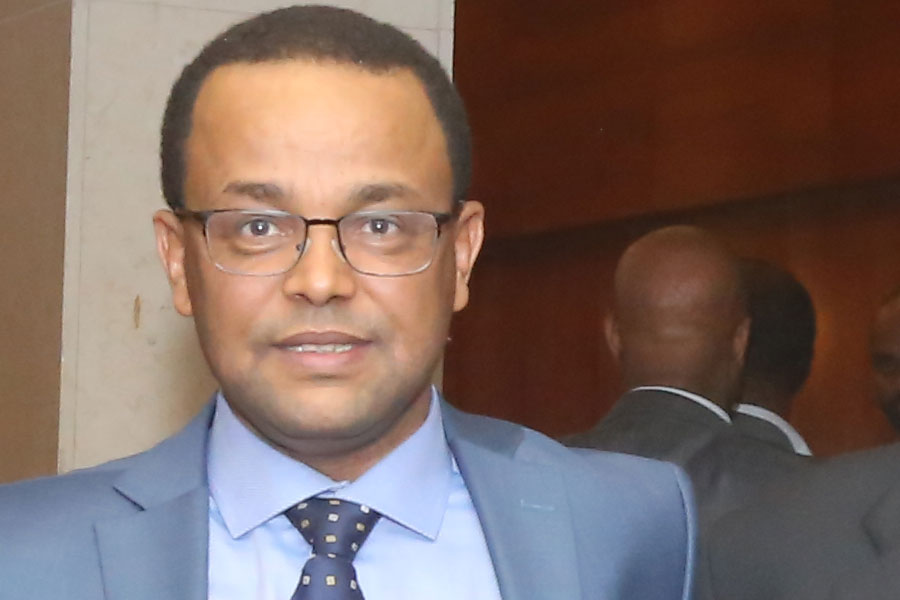
Fortune News | Mar 12,2022
Judges at the Federal High Court have ordered Berhan Bank to pay 86 million Br to the Ethiopian Roads Administration (ERA) a year after the court battle began. The Bank had issued an advance payment guarantee bond to Tekeleberhan Ambaye Construction Plc (TACON) for a road project in the Oromia Regional State.
The grade-one contractor, incorporated by Tekleberhan Ambaye as a major shareholder, won the contract for a 68Km road from Robe-Seru in July 2018. Berhan Bank issued the guarantee for 89.6 million Br the following February. The project had an estimated cost of 993 million Br and a three-year completion period. The ERA made two rounds of advance payments to the contractor for 46 million Br and 43 million Br in March and April 2019.
However, the Authority issued a pre-agreement contract termination to the contractor in June 2020, claiming the contractor had failed to meet the 30pc progress benchmark. Close to two percent of the project was completed, argued the ERA in the file its legal representatives submitted to the Court. The ERA took the case to the Federal High Court last year, alleging Berhan was not paying out the bond; it appealed to judges to order the Bank to compensate for its losses and other expenses incurred since September last year.
Lawyers representing the Bank argued their client had no obligation to pay out the total advance amount as the ERA approved the contractor's request for a second-round payment. They pleaded with judges that the amount should be reduced, factoring in progress in the construction, which they rejected to be 1.8pc. Defendant lawyers also demanded that the contractor's legal representatives be present in the hearings, a plea judges dismissed.
The plaintiff presented a 142-page document compiled by the project consultant outlining the project's status and assets owned by the contractor.
Judge Yenenesh Bahru ordered Berhan Bank to make the payment, deducting the value of the construction work completed and the assets of the contractor at the project site. The amount represents a small portion of the outstanding guarantees issued by Berhan, which stood at a little more than five billion Birr. It accounts for 23pc of the deposits mobilised and 29pc of the loans disbursed by the Bank by the end of last year.
"The Bank is a party to numerous legal actions brought by different organisations and individuals arising from its normal business operations," reads the Bank's latest annual performance report. "The maximum exposure of the Bank to these legal cases is 266.64 million Br."
Incorporated in 2009 with a paid-up capital of 154.7 million Br, Berhan netted 195 million Br in profits last fiscal year.
According to Girum Tariku, Berhan's corporate communications and marketing director, the Bank is complying with the Court's order and making the payment. He declined to comment on how much has been paid out thus far.
Samuel Kiflu, contract and claims team leader at the ERA, told Fortune the Bank still has other pending cases at the courts and remains barred from issuing advance guarantees for projects ERA contracts out. Berhan is among nine financial institutions the ERA has previously debarred from issuing guarantees, alleging that they failed to fulfil their obligations on time. The Authority recently lifted the ban on Tsehay Insurance after the insurer paid a settlement of 4.7 million Br for a guarantee bond it had issued to Akir Construction more than seven years ago.
The Authority's proscription policy is unfair, says Yonas Jarsa, a lawyer with seven years of experience who has previously served as a legal officer at the central bank. He argues that the Authority should review the issues case by case and employ other redressing methods such as arbitration.
“Arbitration could better address the issues as it would bridge knowledge gaps," said Yonas.
The ERA has previously taken cases to arbitration tribunals.
Three years ago, United Insurance appeared before an arbitral tribunal under the Addis Abeba Chamber of Commerce & Sectoral Associations over a performance guarantee bond the insurer had issued to Tibeb Construction in 2009. Even though the dispute's core issues were resolved at the tribunal, the Authority took the case to the Federal Supreme Court to appeal the arbitrator's ruling.
After a drawn-out court battle, judges ruled United pay 55 million Br in compensation last year.
PUBLISHED ON
Jan 15,2022 [ VOL
22 , NO
1133]

Fortune News | Mar 12,2022

Radar | Sep 11,2020

Fortune News | Dec 27,2018

Radar | Sep 10,2021

Fortune News | Dec 26,2020

Dec 22 , 2024 . By TIZITA SHEWAFERAW
Charged with transforming colossal state-owned enterprises into modern and competitiv...

Aug 18 , 2024 . By AKSAH ITALO
Although predictable Yonas Zerihun's job in the ride-hailing service is not immune to...

Jul 28 , 2024 . By TIZITA SHEWAFERAW
Unhabitual, perhaps too many, Samuel Gebreyohannes, 38, used to occasionally enjoy a couple of beers at breakfast. However, he recently swit...

Jul 13 , 2024 . By AKSAH ITALO
Investors who rely on tractors, trucks, and field vehicles for commuting, transporting commodities, and f...

Jul 12 , 2025
Political leaders and their policy advisors often promise great leaps forward, yet th...

Jul 5 , 2025
Six years ago, Ethiopia was the darling of international liberal commentators. A year...

Jun 28 , 2025
Meseret Damtie, the assertive auditor general, has never been shy about naming names...

Jun 21 , 2025
A well-worn adage says, “Budget is not destiny, but it is direction.” Examining t...